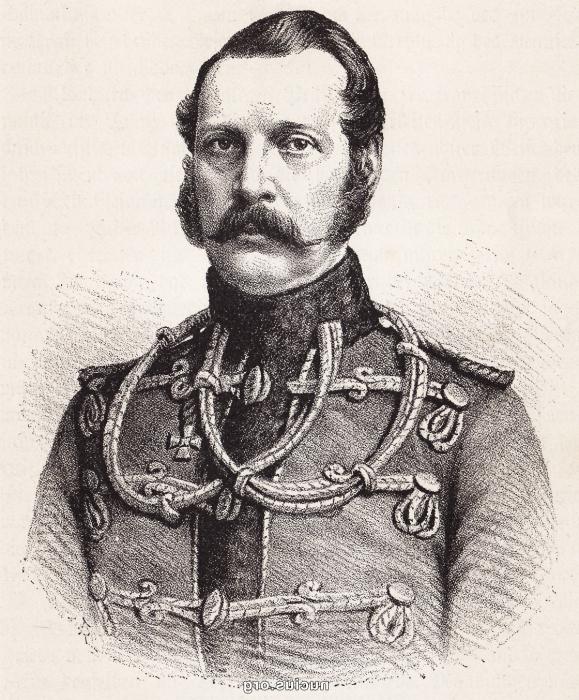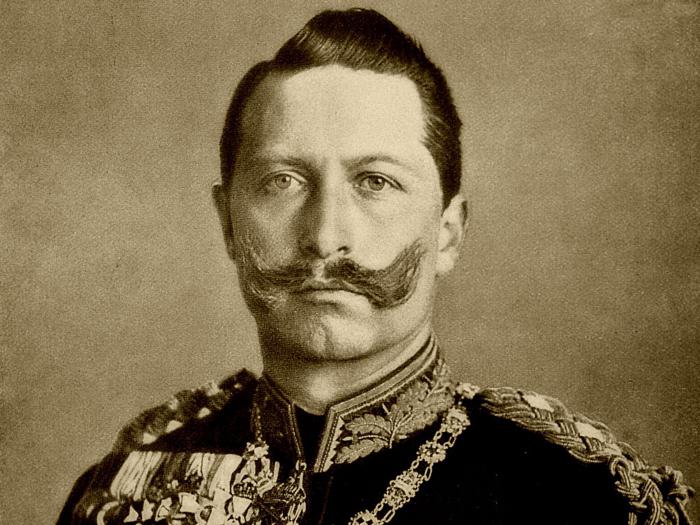The end of the nineteenth century in Europe was marked by large state-territorial and geopolitical changes, as a result of the defeat of France by Prussia, an extensive and powerful German Empire arose, the Ottoman Empire, which still dominated significant land holdings, became weaker. All these factors prompted Russia to seek ways to strengthen its position in the international arena. One of the consequences of this search was the creation of the “Union of Three Emperors”.
Europe towards the end of the 19th century
The events of the last third of the nineteenth century brought to the foreign policy of the Russian Empire constant concern for their security and influence. After the defeat in the Crimean War, the country distanced itself from big European politics and focused on solving internal problems. This gave its results - its economic and military muscles were gradually building up. But the opponents did not doze off. As a result of the swift Franco-Prussian war, France temporarily ceased to exist as a strong and influential state, and Russia received a powerful and aggressive formation on its western borders - the German Empire. The real state of affairs testified to the possibility of the formation of an Austro-German union, which could further complicate the situation of our country. The government of Alexander II was well aware of this threat. Trying to avoid it, Russian diplomacy developed vigorous activity. Active tripartite consultations between the heads of foreign affairs agencies and the monarchs themselves revealed to the world the “Union of Three Emperors” of 1873.
Terms of the contract and its essence

So, formally, Russia, Germany and the Austro-Hungarian Empire entered into a coalition among themselves, but if you look closely at the clauses of the agreement in detail, it becomes clear for the most part declarative in nature. Indeed, this alliance provided only for the promises of the three parties to resolve their disagreements through consultations, and in case of threat of aggression by the fourth side, develop a plan of action. As you can see, none of the parties was bound by obligations. Nevertheless, each party, making certain concessions, pursued its own goals. Russia wanted to receive a reprieve for its main ally in Europe - France, and not become a hostage to the German-Austrian union, Austria-Hungary hoped with the help of this agreement to strengthen its position on the Balkan Peninsula. Germany, with the help of this treaty, planned to secure room for action with regard to France. The further course of history showed the ephemeral nature of all expectations. In 1875, exacerbation of Franco-German relations occurred, Germany was about to punish the unyielding neighbor, but Russia said it would not allow the repeated defeat of France. This allowed Bismarck to annoyingly call the “Union of Three Emperors” an empty and unnecessary piece of paper.
Disagreements of the parties to the agreement

Contrary to all expectations, this association existed for a long time, providing, though a ghostly, but still peace in Central Europe. At the end of the 70s of the nineteenth century, relations between Germany and Russia became increasingly hostile. The Germans had external assurances of friendship and sympathy for our country with reality, which caused irritation and hostility in Petersburg with regard to Berlin. Alexander III at the time of accession to the throne was already experiencing a steady anti-German sentiment. Despite these views, the new emperor agreed to renew the treaty. The clauses of the new treaty stipulated that in the event of a war with the Ottoman Empire, neutrality is determined by special agreements, hypothetical changes in the borders of the Shining Port should only take place with the consent of all parties to the coalition. The “Union of Three Emperors” of 1881-1894 had the basic idea of containing the Germans and Austrians, because at that time Russia simply had no other more effective methods
Change in geopolitical situation
Meanwhile, the alignment of forces has undergone changes. In 1882, Germany, Italy and Austria-Hungary entered into a military-political alliance, which went down in history under the name “Triple Alliance”. This coalition directly obliged the parties to conclude it to military support by all means and means. First of all, the alliance was directed against France, in the second - against Russia, in the Balkans, rivalry with Austria-Hungary became more acute. St. Petersburg was well aware of this, therefore, in 1887, our country agreed to a secret treaty with Germany. The so-called “Reinsurance Agreement” assumed neutrality in the event of a war with a third country, but it was agreed that this did not apply to cases of the Franco-German or Russian-Austrian war. Thus, the Union of the Three Emperors exhausted its positive resource.
On the eve of the great war
These agreements were temporary for the Russian Empire. An event unthinkable for Europe took place in the early 90s of the XIX century - absolutist Russia went to the conclusion of an alliance with republican France. The diplomatic department continued to probe the possible ways of rapprochement with Britain. The “mistress of the seas” themselves perfectly understood that the policy of brilliant isolation was coming to an end and that they had more interests with Russia than with the Austro-German bloc. Long diplomatic negotiations were successful, so the second Entente military-political bloc appeared, including Russia, England and France. Nevertheless, the “Union of the Three Emperors” played its historical role of maintaining peace in Europe in the last third of the 19th century.